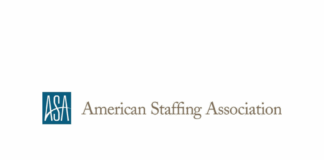
By RJ Frasca, VP of Channels & Marketing, Shield Screening
Key takeaways:
- AI is fueling a rise in “synthetic candidates” — entirely fake personas created using AI-generated resumes, credentials, and deepfake interviews — posing serious risks to hiring integrity and workforce safety.
- Traditional screening methods are no longer reliable against AI-powered fraud; employers must adopt layered verification strategies like direct-source validation, real-time data checks, and continuous credential monitoring.
- Balancing technology with human oversight is critical, as AI tools must be paired with trained professionals to detect nuanced red flags and prevent malicious actors from infiltrating sensitive industries.
There’s no denying the benefits of using generative AI (GenAI) in recruiting and hiring – automated resume screening and shortlisting, analysis of recruitment data, and personalized outreach and engagement. Gen AI has reshaped the industry by transforming traditional menial tasks with remarkable speed and precision. Likewise, job seekers themselves now rely on sophisticated AI tools to help build optimized resumes that can breeze through the application process.
But as AI streamlines the job-seeking journey, it simultaneously heightens risks for employers. In a digitally augmented world, sophisticated AI technology has opened new doors for fraud, making comprehensive background checks indispensable in maintaining workforce integrity.
AI-crafted credentials: Exploring the ethics of resume enhancement
The modern job search has undergone a dramatic transformation in a few short years. Where candidates once invested considerable time in updating their resumes and cover letters to meet the needs of each job application, many are now turning to AI to help them craft their resumes easily and quickly. One study from early 2024 noted that nearly half (45%) of job seekers already use AI to enhance their job applications. More recent data suggest that this number remains substantial, with around 28% using AI for resume writing specifically. While offering efficiency, this rapid adoption opens the door to a surge in deceptive applications, overwhelming traditional vetting processes. The problem is certain to continue to grow, with Gen Z being five times more likely to lie on their resume and significantly more likely to use AI to do so, according to a recent AI Resume Builder survey.
The potential scale of this issue is significant. Experts predict a substantial increase in “synthetic candidates” – AI-generated personas with fabricated employment histories, credentials, and even realistic deepfake video or audio interviews. These aren’t simply embellished resumes; they represent entirely artificial identities designed to deceive and potentially infiltrate organizations for malicious purposes.
Imagine a healthcare facility inadvertently employing a nurse whose entire professional background, including licensing and certifications, is entirely AI-generated. The potential for harm, compliance risks, and reputational damage is enormous. Similarly, a financial institution might unknowingly hire a fraudulent candidate, exposing sensitive client information to malicious actors and risking financial and legal repercussions.
This threat isn’t speculative. Recent news revealed that North Korean operatives have already exploited these tactics to infiltrate U.S. tech companies. Using stolen personal data such as Social Security numbers, they used advanced AI technology to impersonate legitimate job seekers for remote positions — successfully posing as candidates during virtual interviews and securing employment at multiple Fortune 500 firms. These incidents not only jeopardize organizational integrity and workplace safety but also raise serious national security concerns.
Understanding the AI threat: An upswing in synthetic candidates
Employers face unprecedented risks from AI-driven deception, including:
- Synthetic identity fraud: Identities meticulously crafted by blending real and fabricated personal details, making detection difficult.
- Credential forgery: AI-powered creation of false diplomas, certifications, or employment histories that appear indistinguishable from authentic documents, often leveraging “diploma mills” that issue illegitimate qualifications. In the United States alone, there are more than 1,000 diploma mills.
- Deepfake interviews: Convincing AI-generated audio or video impersonations that allow fraudulent candidates to pass remote interview processes.
Industries most at risk
Industries with stringent credentialing standards, such as healthcare, education, finance, and technology, face the most pronounced vulnerabilities. Here’s a look at some of the top challenges impacting each industry:
- Healthcare: Fraudulent hires pose a risk to patient safety through misdiagnosis, incorrect treatments, or exposure to unqualified medical personnel, which can potentially result in serious medical errors or compliance violations.
- Education: Hiring unqualified teachers or administrators could severely impact educational quality, jeopardize student safety, and compromise institutional credibility.
- Technology: Tech companies face risks of intellectual property theft, operational sabotage, and compromised security infrastructure when hiring candidates with falsified expertise, which threatens innovation and organizational trust.
The waning effectiveness of traditional screening in an AI era
Hiring teams have depended on verifying employment histories, educational credentials, and references for years. However, the emergence of AI, capable of producing hyper-realistic forgeries, renders these traditional screening methods obsolete, and concerns about the limitations of conventional verification methods in AI-driven hiring are growing among HR professionals.
A recent survey found that 64% of HR managers incorporate AI into their operations; however, 23% cited data privacy and security as the top ethical challenges, and 17% pointed to bias in AI decision-making. Employers risk employing unqualified or malicious individuals without stronger validation processes, putting operational integrity, data protection, and legal compliance at stake. Discovering fraudulent licenses and entirely invented educational qualifications by unsuspecting companies serves as a stark warning.
Strengthening defenses: Layered and continuous verification
The solution to AI-driven deception lies in enhanced, multi-layered verification processes. Effective screening now demands comprehensive, direct-source validations such as contacting educational institutions and professional licensing boards directly, circumventing easily falsified documents.
Additionally, companies must leverage automated, real-time database checks to rapidly flag discrepancies or fabricated credentials, ultimately helping reduce risks associated with delayed or superficial verification. Continuous monitoring further assists in verifying credentials remain valid and authentic throughout an employee’s tenure. This proactive approach quickly identifies and responds to credentials revoked after initial validation, protecting companies from ongoing internal threats.
Balancing AI technology with human expertise
While technology enhances verification capabilities, human oversight remains vital. Combining AI-assisted screening tools with trained verification specialists creates a powerful defense against deceptive candidates. Experienced professionals can identify subtle inconsistencies and suspicious patterns that automated systems might overlook.
For instance, AI systems might validate the authenticity of presented credentials, while human evaluators assess nuances in employment histories or interview interactions, detecting behavioral irregularities indicative of AI fabrication.
Preparing for the AI-driven hiring future
As AI continues to evolve, organizations must proactively modernize and enhance their screening programs. Implementing advanced verification, real-time data checks, and continuous credential monitoring is crucial for mitigating the risk of fraudulent infiltration and maintaining the safety and integrity of the workforce. By combining cutting-edge technology with trained human oversight, businesses can confidently authenticate new hires, ensuring the creation of qualified and secure teams in an age of AI-driven deception.
 RJ Frasca is Vice President of Channels & Partnerships at Shield Screening, a leading full-service employment screening company specializing in providing quality and dynamic background screening solutions to meet the demands of today’s job market. Frasca brings decades of marketing and product management experience in employee screening to his role at Shield Screening, enabling strategic foresight into emerging industry trends and positioning him as one of the most authoritative thought leaders in the industry.
RJ Frasca is Vice President of Channels & Partnerships at Shield Screening, a leading full-service employment screening company specializing in providing quality and dynamic background screening solutions to meet the demands of today’s job market. Frasca brings decades of marketing and product management experience in employee screening to his role at Shield Screening, enabling strategic foresight into emerging industry trends and positioning him as one of the most authoritative thought leaders in the industry.





